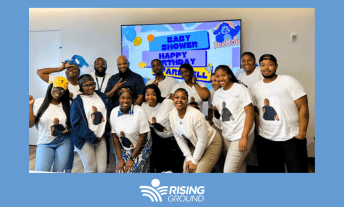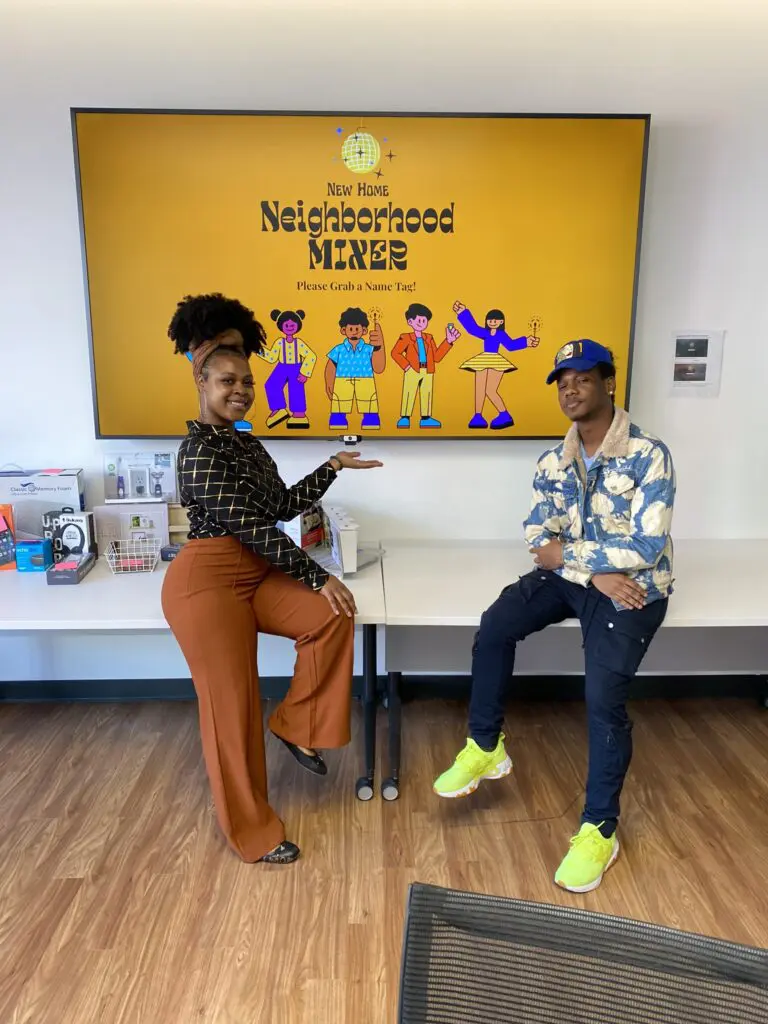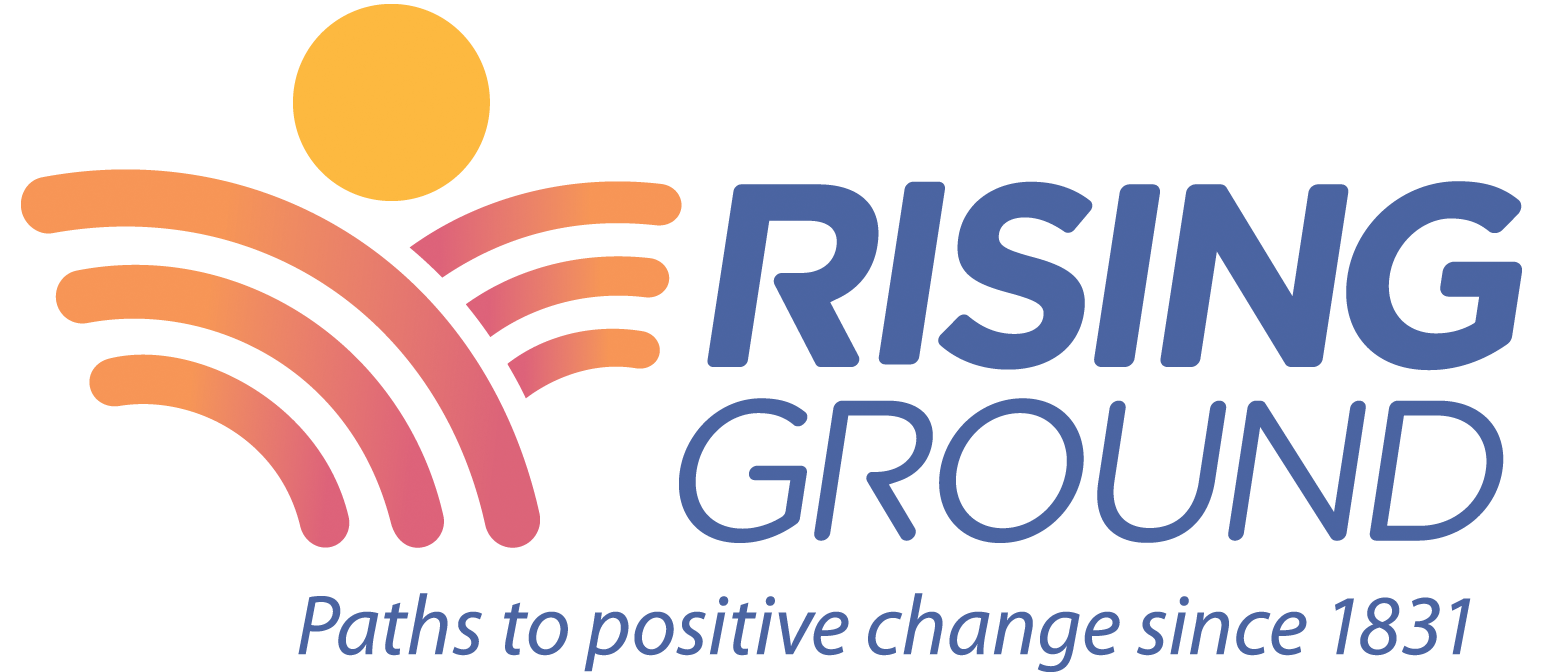News

Spotlight: Rapid Re-housing
When 25-year-old Chanel opens the refrigerator of the Bronx apartment she has lived in for the past year, she sees more than its contents. When she looks at the vegetables and meat products, she thinks about the guidance she has received on buying groceries and budgeting for food. As she assesses the use-by dates and checks her produce for signs of spoiling, she thinks about the food safety instruction she has been given as well as the general tenant safety information about window guards and smoke alarms. She also thinks about the time in the not-so-distant past when she did not have her own refrigerator or a home. She thinks about where she had been and how far she has come.
Chanel is supported by Rising Ground’s Rapid Re-housing program that helps young adults aged 18 to 24 quickly exit homelessness into permanent housing. Funded by the US Department of Housing Urban Development (HUD) and regulated by New York City’s Continuum of Care, Rapid Rehousing provides up to two years of rental assistance and support services that are tailored to the needs of each young person. Rising Ground receives referrals from the New York City’s Department of Youth and Community Development and Department of Homeless Services for young people who have either been in the city’s shelter system or living on the streets. Rising Ground is also a provider of HUD’s Youth Homelessness Demonstration Project (YHDP) that offers up to three years of rental assistance with the “homeless” definition expanded to include young people who have been couch surfing. Combined, the Rapid Re-Housing program and YHDP offer assistance to over 120 young people a year.
In a city with a notoriously difficult apartment market, Director Karim Lewis says the programs have established relationships with seven affordable housing companies and also private landlords, including roommate shares. Following an assessment on whether living alone or with a roommate is most suitable, a housing specialist helps the young person to evaluate and select an apartment and assist with the steps of signing a lease. Once housed, the young person receives support from a Case Manager and a Youth Peer Advocate (YPA). YPAs are professionally credited young people aged 30 and under who have experienced homelessness. They serve as a personal advocate for the young person as they transition from survival mode to stability, and provide emotional support.
“Often we assume it is very straightforward when someone gets housing – that they are going to be happy and that everything will be great. However, there are a lot of emotions that could come up when someone moves from homelessness to housing, even if it is something positive.”
Zaqanah Stephens and Onyx Walker are two of the YPAs at Rising Ground.
“Often we assume it is very straightforward when someone gets housing – that they are going to be happy and that everything will be great. However, there are a lot of emotions that could come up when someone moves from homelessness to housing, even if it is something positive,” says Zaqanah, who has been a YPA for three years. “Housing instability can create a lot of trauma that surfaces when moving and around housing in general. You could feel afraid to be happy or not feel safe to be happy because you’re not sure if it is something that will be taken away from you. I work with the youth to get comfortable in their space and to trust that they can be independent.”
Onyx, who has been a YPA for two years, agrees trusting that the support is solid and sustained takes time and that understanding the young person’s reactions is key:
“There’s a saying, ‘it’s better to stick with the devil you know, than the angel you don’t know.’ I think for a lot of people that seems to be true, because change is scary. The whole thing is scary – you were just homeless and now you have an apartment, and this person is telling you to do something you’ve never done before. It’s terrifying for a lot of people. I think childhood struggles are a part of what is coming up during this transition. Current struggles are a part of it as well. As someone with lived experience, I understand how hard it is to shift your mindset from the survival mode.”
For Chanel, the support of her Case Manager, Demetrice Gore, helped her overcome her fears: “Don’t get me wrong, being housed definitely does take a lot of stress off of one’s shoulders, but having a case manager by your side helps to process the experience you’ve been through and make the transition easier. My case manager, Demetrice, has
been very supportive. First, she makes sure I am safe. She helps me understand the responsibilities of having an apartment. She has helped me understand that the things and the trauma I have been through don’t define me.”
In addition to a Case Manager, who makes regular home visits, and the YPA, the young people receive employment and income support services including financial planning and budgeting assistance. The youth also receive counseling and mental health
services when needed. Chanel says the scope of the support and the time spent making sure she is ready for independence was unexpected: “I thought this was only going to be a short-term, three-month thing. This is a government program and I thought they would just want to say that they got me housed and that I would just be another number for them. Now it is almost a whole year later. There’s a team of people that want to support me in becoming more stable, helping me grow, and helping me get beyond my trauma.”
Trusting the support offered to her has helped Chanel make her apartment into her home. She has brought clothing out of storage and bought furniture. She is focused on managing her finances to cover the expenses of one’s own apartment, paying off college and credit card debt, and broadly achieving stability in her life.
And then there is the pride she has in her well stocked, regularly cleaned fridge. She says she now feels secure enough to not overstock on food because she knows there is going to be another grocery shop, a safe place to keep her food, and a kitchen where she can cook her meals. She knows she has a home.
Pictured above: Rising Ground’s Rapid Re-housing team and Director Karim Lewis, back row, third from left, and also on the team’s shirts!

Rapid Re-housing Youth Peer Advocates Zaqanah Stephens and Onyx Walker
at the Neighborhood Mixer organized by the Runaway & Homeless Youth teams.
Being Pro-active About the Personal
For Rapid Re-housing Youth Peer Advocates, drawing on their lived experiences when working with young people is rewarding, especially when they can provide the emotional support that was not available to them when they were homeless. However, reliving their trauma on a regular basis can also take an emotional toll.
In addition to having support within the Rising Ground Runaway and Homeless Youth Services team, Zaqanah and Onyx find support through the Youth Action Board (YAB), a group that aspires to be agents of change using lived experiences of homelessness as a tool to assist NYC youth 16-24 years. Onyx, who is the current chair of the YAB, says sharing experiences and resources with others allows his personal efforts to support many others.
“Among our accomplishments is our work with the Department of Health and Mental Hygiene to create a youth mental health forum. They were already doing these forums, but they had not addressed the runaway and homeless youth population. They reached out to see if there was any way that they could get feedback from homeless young people or folks that have experienced homelessness before. We brought people together and
had a three-hour long conversation That was super impactful because we were really getting to the bottom of why is it that young people do not look into mental health services as well as how to make services accessible for them when they do.”
The YPAs recently joined colleagues from other Rising Ground runaway and homeless youth programs to organize a mixer for young people living in the same neighborhood, giving individuals who may have been feeling isolated by their new living situation an opportunity to meet other young people with shared experiences. The goal is to expand their network of support in the community.
“Being encouraged to fully explore what peer and youth advocacy can mean helped me to unpack many difficult emotions, have a sense of purpose, and has allowed me to realize that I’m able to do something about the challenges others face,” says Zaqanah. “Knowing that I have support at my work to fully invest in myself is
powerful and has made me able to do this work better and remain safe.” ![]()
This story features in the Fall 2024 edition of our Rising newsletter. View the full newsletter here.
